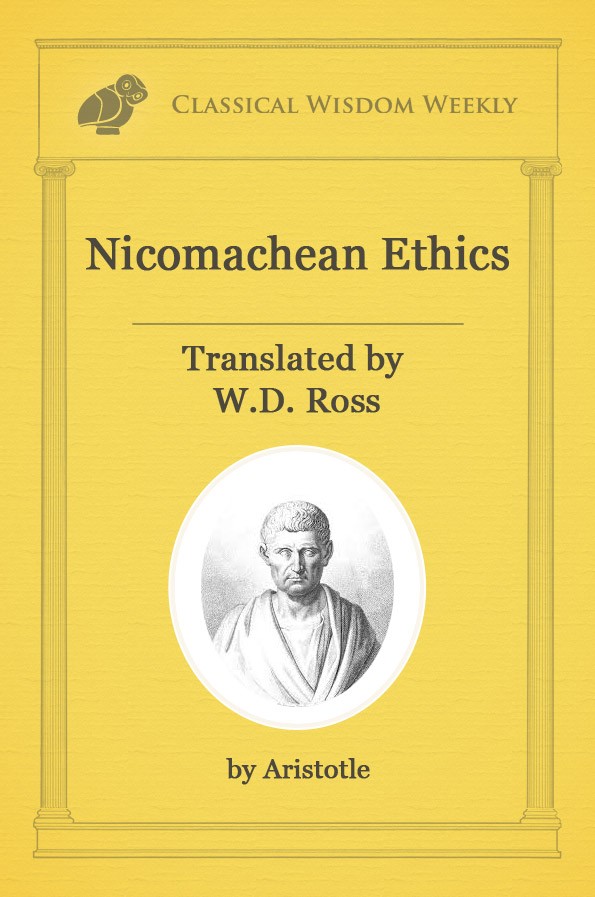How many friends do you have? Are they really your friends? Is it possible that your friends are using you for utility or pleasure? If you have never thought about these questions, then you really should. Aristotle certainly did.
Aristotle addresses the question of friendship in Nicomachean Ethics, Book VIII. Friendship, Aristotle tells us, is of supreme importance. Moreover, it is essential to our happiness. As the philosopher says,
“No one would choose to live a friendless existence, even on the condition of having all other good things.” –Aristotle (Nicomachean Ethics, Book VIII)
It doesn’t matter whether you are rich or poor; friendship is essential to our lives. Aristotle tells us that if we are rich and prosperous, then we will need friends to partake in our beneficence and to help protect our prosperity. Conversely, if you are poor, friendship is viewed as one of the only refuges from misery.
The young need friendship to keep them from error and to teach them the ways of the world. The old need friendship to care for them and support them when their bodies fail to weakness.
Perhaps most surprising, friendship is not only important to the individual, it is necessary for the continued existence of the state.
“Moreover, friendship would seem to hold cities together, and legislators would seem to be more concerned about it than about justice. For concord would seem to be similar to friendship and they aim at concord among all, while they try above all to expel civil conflict, which is enmity.” –Aristotle (Nicomachean Ethics, Book VIII)
 While friendship is indeed important, there are so many questions about friendship that we must answer. What types of people make good friends? Is it true that similars attract, hence the phrase ‘birds of a feather’? Or are similar people like “the proverbial potters” who always quarrel with one another?
While friendship is indeed important, there are so many questions about friendship that we must answer. What types of people make good friends? Is it true that similars attract, hence the phrase ‘birds of a feather’? Or are similar people like “the proverbial potters” who always quarrel with one another?Interestingly, Aristotle actually appeals to the philosopher Heraclitus, whom we just spoke of, to give credence to the idea that opposite forces create beautiful harmony out of struggle. Perhaps then it is opposite types of people who become the best of friends.
Putting all these considerations aside for the moment, Aristotle comes up with a general account of friendship as being reciprocated goodwill between people for reasons of usefulness, pleasure, or goodness.
Amusingly, Aristotle takes the time to inform us that we cannot be friends with inanimate objects. Objects cannot reciprocate our goodwill and love. So no matter how much you might wish it, and I swear to god he says this, you can’t be friends with your wine.
Aristotle continues by telling us that there are essentially three types of friendships. For just as causes differ, so do the types of living and types of friendship. The first two types of friendships are based on utility or pleasure.
This seems obvious enough to us. Those who love for either utility or pleasure do not love the person for their character or virtue. Rather, they love the person based on what is either good or pleasant for them.
If you were to give yourself some time to think, you certainly would be able to name friends who love you only insofar as you provide them with utility or pleasure.
Aristotle gives the example of a relationship between a host and a guest as a type of friendship based upon utility. And the friendship between young lovers typically is a friendship based upon pleasure.
While these types of friendships are commonplace within society, and occur frequently throughout a lifetime, they have the tendency to dissolve rather quickly. A friendship based upon utility or pleasure, obviously, ceases to exist once the individuals in the relationship are no longer advantageous to each other.
Aristotle tells us that these superficial friendships are common amongst young people. Young people, largely, are guided by their emotions and they pursue, above all, that which is pleasurable or that which is expedient.
It is not surprising then that so many youthful friendships have the tendency to dissolve rather quickly once the youths grow and their ideas of what is pleasurable or useful changes. They do not, in short, tend to create lasting friendships.
 So is there a way to attain real, enduring friendship? Are we doomed to live with false friends who only love us so long as we are useful to them?
So is there a way to attain real, enduring friendship? Are we doomed to live with false friends who only love us so long as we are useful to them? Aristotle tells us that there is a third type of friendship. It is this friendship, more than any other, which we should seek out in our lives.
The third friendship is a friendship based on virtue or goodness. This type of friendship occurs when two people with similar understandings of true virtue meet and come to love one another for each others character or virtues. Moreover, the friends in this relationship wish goodness upon their friends for each other’s sake, and not because it might benefit themselves somehow.
These friends are friends most of all and their friendship may last as long as they are good and their virtue is enduring. Interestingly, while this friendship is based on altruism, it also provides the friends with both utility and pleasure. For it can be said that having a true friend is useful in that it makes us better people, and it can be said to be pleasurable because it gives us a true companion to share life with.
While this type of friendship is truly good and virtuous, Aristotle tells us that these friendships are the most rare of all. True friends take time to know each other. Often times they must partake of hardships together so that they might truly appreciate the other’s companionship. Aristotle says that true friends must sometimes “share the peck of salt” before they can sincerely know each other.
This might be a good time to take stock. How many friends do you have? More importantly, which of those friendships are based upon pleasure or utility? And which ones are the third type of friendship, a friendship based on mutual, altruistic love?
You might be unsurprised to find that your list of true friends is relatively short. Aristotle concludes this section by telling us that this is to be expected. While the wish for friendship might come quickly, true, lasting friendship does not.









No comments
Trackbacks
Our apologies, you must be logged in to post a comment.